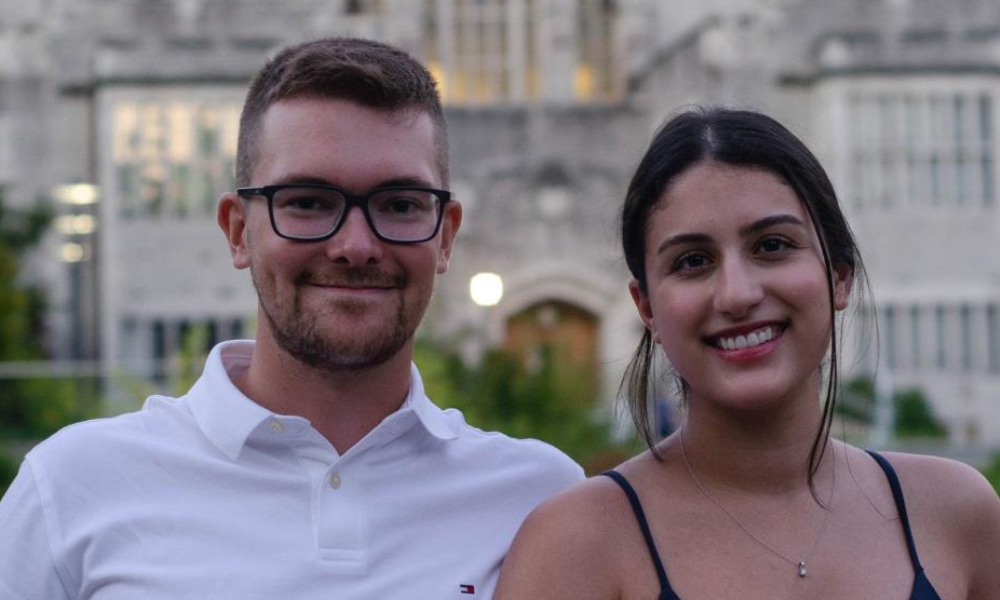Generations, often told 'they'll never retire' can be shown the power of compounding say advisors

It’s a common theme among millennials and gen z to declare retirement as out of their reach. Given the challenges of achieving earlier financial milestones like owning a home or affording a child’s education, these generations often think of retirement as unattainable. Despite their many challenges, however, one advisory team likes to remind their young clients that they do have the advantage of time.
Curtis Holt-Robinson and Tara Lalehparvar are the co-founders of Skyward Financial, an advisory practice that specializes in serving younger clients. They admit that most of their younger clients’ goals are more short-term: affording an annual vacation, setting up an emergency fund, or buying property. When they ask them about retirement, most clients will say it’s not in their horizons because they view it as unattainable. To shift their mindset and get them thinking about retirement, Holt-Robinson and Lalehparvar introduce their clients to the concept of compounding.
“For us it’s about educating them on why it’s important that even though they’re only 20 years old they do start thinking about retirement, and we do that by emphasizing compounding,” Lalehparvar says. “We teach them what compounding means, how it affects you, and why it’s on your side because you’re 20 years old.”
Lalehparvar and Holt-Robinson take their young clients through a modelling exercise, outlining what a $25 weekly contribution to an investment account can turn into at a relatively modest annualized compounding rate of 8%. Starting from nothing and making that modest contribution alone, by the time a 20 year old turns 65 they’ll have almost half a million in savings.
Sometimes millennial and gen z clients have had the idea of retirement or home ownership as unattainable drilled into them by family, friends, and the media. A demonstration of tangible proof, and the example of what small decisions now can do down the road can go a long way to showing these younger clients that their goals aren’t as unattainable as they might think.
While a demonstration of compounding can convince somebody of the value of saving in the long term, making a long-term choice is one thing, but maintaining it as a habit is something else. It can be tempting for someone to see that $25 per week as better spent on a subscription service or a new car payment rather than their retirement savings. Because they do a lot of budgeting work Lalehparvar and Holt-Robinson schedule regular meetings with their clients where adherence to their savings plans, and any creep in their spending, is brought up and addressed.
Sometimes when they bring up the idea of retirement, Holt-Robinson and Lalehparvar hear their clients speculate that CPP, OAS, or an inheritance will be enough for their retirement. When it comes to CPP or OAS, a quick demonstration of the real monthly numbers are enough to show anybody that their benefits won’t be enough all on their own.
Read more: How could retirees benefit from Canada's first ALDAs? | Wealth Professional
Inheritance can be a different kettle of fish. Holt-Robinson and Lalehparvar try to encourage these clients first to plan as though the inheritance never comes so they can live self-sufficiently given that these amounts of money are very rarely guaranteed. At the same time, they try to coach them emotionally and financially so that if a large inheritance comes in, it doesn’t come with a host of difficult issues. Often times inheritances can prompt rash purchases that clients come to regret. Other times the weight of all that money, combined with the loss of a loved one, can cause more emotional turmoil than a client anticipated. For Holt-Robinson and Lalehparvar, those moments involve handholding and a frank discussion about how to turn an inheritance into a long-term good.
As other advisors talk to millennial and gen z clients — of the children of their clients — about the prospect of retirement, Lalehparvar and Holt-Robinson believe they should keep education front of mind. Perhaps more importantly, though, they should focus on the client in front of them and hear what goals and priorities they want to achieve.
“If retirement planning is an advisor’s speciality, that’s great and it’s important, but you still need to meet the client where they’re at,” Holt-Robinson says. “If retirement is something that falls sixth on their most important list, or even below that, you have to respect that there’s no way you’re going to sit with somebody for long enough that retirement becomes their be all and end all. It’s a matter of respecting the person and their preferences.
“From there it’s education, showing them what $25 a week can do, ether it’s retirement planning, or saving for a house, or even saving for a vacation, it’s a matter of showing the least amount of change in behaviour to get a good result. Don’t ask them for a $1,000 per month contribution, that’s probably not going to happen if they’ve never saved. Show them what the bare minimum can do for them, and let them decide what those numbers may be.”



